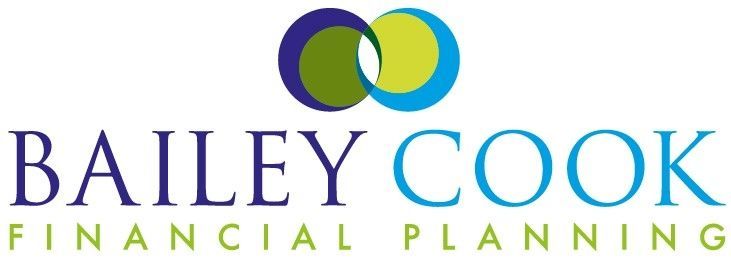News

Deja Vu (All Over Again)
Tuesday 23rd September 2025
History doesn’t repeat itself but it often rhymes
This time last year, we were in the thick of Budget rumours, with speculation about wide-ranging tax changes.
Some of those did materialise — most notably, the introduction of Inheritance Tax (IHT) on pension funds from April 2027, which has already forced many to rethink their estate and retirement planning.
At the time, there were promises of stability, predictability, and an end to frequent policy U-turns. Yet here we are again, faced with a new round of tax-increase speculation ahead of the forthcoming Budget on 26th November 2025. Following last year’s Budget, Rachel Reeves said in an interview with the BBC’s political editor Chris Mason: “This is not the sort of Budget we would want to repeat.” And yet, history seems to be in danger of doing just that.
On one hand, the Government must adhere to two fiscal rules: day-to-day spending must be covered by tax revenues, and net public debt must fall as a share of the economy. On the other hand, ministers have promised not to raise taxes on “working people”, ruling out increases to income tax, National Insurance, or VAT. What’s their definition of a working person?
This leaves the Government with limited room to manoeuvre. Economic growth is weaker than expected, and there is little scope to cut welfare spending, which they tried and failed. As a result, any revenue-raising measures are likely to focus on unearned income and wealth rather than wages. Potential areas of change could include:
- Pensions: further tweaks to tax-free lump sums or reliefs.
- Inheritance Tax (IHT): adjustments to lifetime gift rules or tapering.
- Capital Gains Tax (CGT): possible rate changes or reforms to reliefs.
- Property or business taxes: targeted reforms rather than broad increases.
- State pension triple lock: reformed, although very doubtful.
- Frozen tax thresholds: like IHT extended from 2028 to 2030
The IHT changes to pensions didn’t affect public sector pensions but a change to tax free cash as rumoured will indeed do so. Such a change would affect the Civil Servants who draft any such legislation, so the question is "would turkeys vote for Christmas!!??”
Any changes underline the importance of long-term planning. With targeted tax changes on the horizon, decisions about pensions, investments, property, and estate planning could have a significant impact over the coming years. Even without broad income-tax rises, the Autumn Budget is likely to influence how wealth is managed and transferred. Against this backdrop we know we’ll be very busy.
State Pension Set to Cross the Income Tax Threshold?
Fresh figures from the Office for National Statistics (ONS) suggest the state pension will rise by 4.7% in April 2026, taking the full new State pension to £12,534 per year – just £36 below the personal tax allowance of £12,570. With the triple lock guaranteeing at least a 2.5% increase in April 2027, the state pension looks almost certain to move above the tax threshold.
What’s changing?
- 2026/27 increase: +£562 a year on the full new state pension.
- By 2027: at least £12,850 per year – higher than today’s personal allowance.
- Impact: some pensioners could start paying income tax for the first time, even if their only income is the State pension.
- State pension has increased from £9,627 in tax year 2022/23 by just over 30% in 4 years.
Unless the Government raises the personal allowance, more retirees will be drawn into the tax net.
Our view
The triple lock remains valuable in protecting pension incomes against rising costs and indeed a pledge by the current Government is that it will remain in place for the term of this current parliament. But it also means that without policy changes, more pensioners may face unexpected tax bills in the years ahead. The question is how HMRC will get this tax as State pension, and indeed deposit account interest, is not taxed at source. We wait and see as it will certainly increase the hassle and administration burden. One reason the freeze on tax thresholds may be extended past 2028 is that the tax on State pension is going to happen in any event, due to the triple lock, and the extension by at least two years of the tax thresholds is one Budget predication we feel comfortable to make.
Market Outlook
Markets cheered as the US Federal Reserve delivered the much-anticipated 0.25% rate cut, taking the policy rate down to 4% and importantly also signalled more cuts before year-end, fuelling broad gains in shares. The Federal Reserve wants to support the economy at a time when job growth is slowing. Inflation is still above its 2% target, but is prioritising growth for now. Markets like this approach: cheaper borrowing, easier financial conditions, and a better outlook for company profits.
Tariffs – more bark than bite
President Trump’s tariffs have hit trade partners like Canada (now in recession). But so far, the bigger effect has been on US consumers, who face higher prices.
- The impact has been delayed by stockpiling and temporary pauses on tariffs.
- The US economy has proven more resilient than feared. Recession risks are low, and company earnings forecasts have been rising since April.
The dollar is having its worst year since 2000 which for US investors, has reduced returns. For the rest of the world, a weaker dollar acts like a boost — making trade and global finance cheaper. However, for UK investors in US shares a weaker dollar means that those shares when converted back to sterling fall. A catch 22! The good news is that the US rate cuts add money to the system and makes borrowing cheaper. Earlier this year, the US Treasury was spending its cash savings, which also supported markets. Now it is rebuilding its cash buffer, which means less extra money flowing into the system. From here, gains will rely more on stronger earnings and growth, not just government or central bank support.
Geopolitics in the background
Markets have largely shrugged off global tensions — from Russia and Ukraine to conflicts in the Middle East. But gold prices have been rising steadily, showing investors still want protection and the weaker dollar may also reflect long-term doubts about the US financial system. These are headwinds that need to be watched.
Summary
- Central banks are keeping growth alive with rate cuts.
- The US dollar’s weakness is boosting global markets.
- Political risks are rising, but so far have not stopped markets from moving higher.
- For clients, staying invested generally makes sense, but with balance: reduce US exposure, selective equities, and some defensive assets like gold.
It means a well balanced portfolio is key, with investment managers watching and monitoring the daily market news and changes. Overall, a generally positive outlook.



